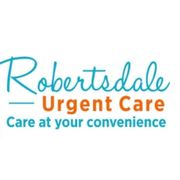
In addition to chickenpox, the varicella-zoster virus also causes shingles. The risk of developing the infection increases with age, which is why it typically affects people over the age of 50. Here is a guide to common shingles symptoms, different types of medical testing used to diagnose the infection, and how it's treated.
How Do Shingles Present?

After a person has chickenpox as a child, the virus remains dormant in the body and can become active again in the form of shingles in adulthood. A weakened immune system, often caused by surgery, illness, or stress, increases the likelihood of the infection developing. In the early stages, a person might have sensitivity to light, chills, headache, fever, and lethargy. In the later stages, a person develops a raised rash and then blisters. The affected area of the skin might also tingle, burn, or itch. The virus that causes shingles can spread to others through direct contact or breathing in virus particles that become airborne.
How Is the Illness Diagnosed and Treated?
During an exam, a health care provider will examine the rash to determine whether it is caused by shingles. Because the virus travels along nerves, the rash is often concentrated in one area and takes the shape of a band. The rash is usually on one side of the face or torso. Medical testing might include tissue scrapings and cultures of blister fluid, which is then studied in a laboratory.
Although shingles can't be treated, antiviral medications, such as Zovirax® and Valtrex®, can be prescribed to manage pain until the rash naturally goes away in a few weeks. Tylenol®, Motrin®, and Advil® are also over-the-counter medications that are effective pain management options. If bacteria gets in the rash, antibacterial drugs might also be prescribed to fight the infection.
If you are experiencing shingles symptoms, visit Robertsdale Urgent Care. Since 2017, the Robertsdale, AL-based walk-in clinic has been providing emergency care services and medical testing for residents in Baldwin County. Visit the medical clinic online to learn more about the staff's credentials, and call (251) 947-3591 to speak with a representative.
About the Business
Have a question? Ask the experts!
Send your question

